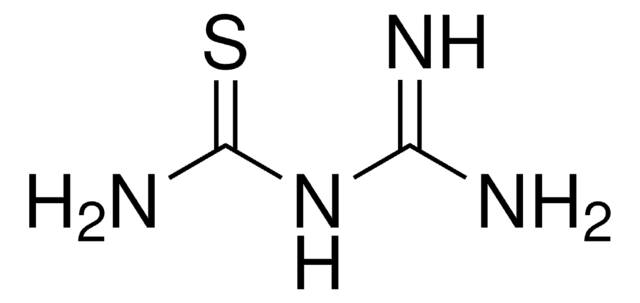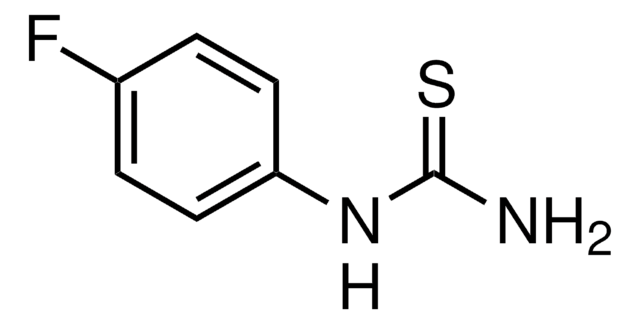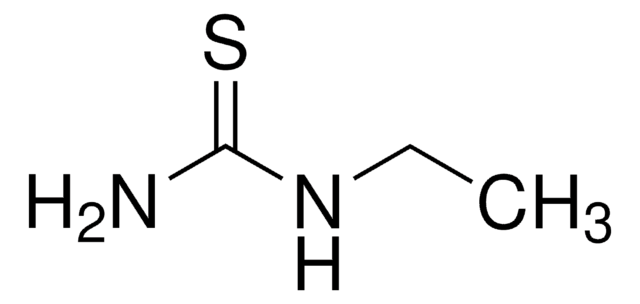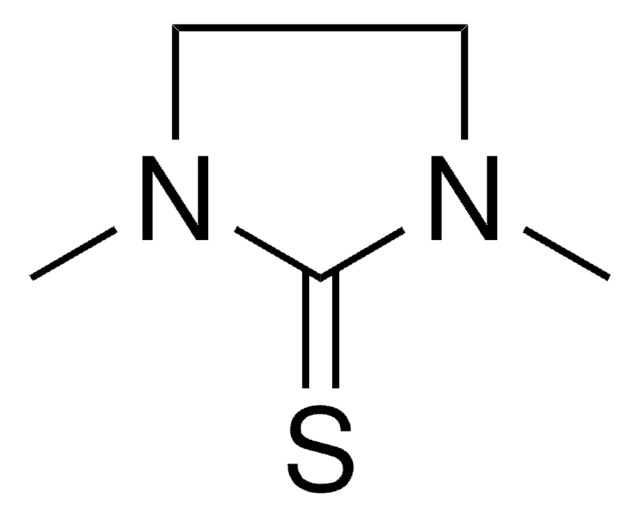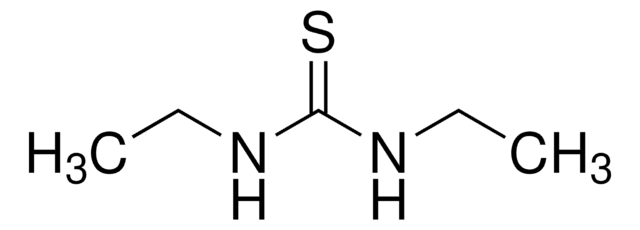All Photos(2)
About This Item
CAS Number:
EC Number:
MDL number:
UNSPSC Code:
12352200
PubChem Substance ID:
NACRES:
NA.77
Recommended Products
Quality Level
Assay
97%
form
solid
SMILES string
NC(=S)NC(N)=S
InChI
1S/C2H5N3S2/c3-1(6)5-2(4)7/h(H5,3,4,5,6,7)
InChI key
JIRRNZWTWJGJCT-UHFFFAOYSA-N
General description
Paralytic agent.
Signal Word
Danger
Hazard Statements
Precautionary Statements
Hazard Classifications
Acute Tox. 1 Inhalation - Acute Tox. 2 Dermal - Acute Tox. 2 Oral
Storage Class Code
6.1A - Combustible acute toxic Cat. 1 and 2 / very toxic hazardous materials
WGK
WGK 3
Flash Point(F)
Not applicable
Flash Point(C)
Not applicable
Personal Protective Equipment
dust mask type N95 (US), Eyeshields, Gloves
Certificates of Analysis (COA)
Search for Certificates of Analysis (COA) by entering the products Lot/Batch Number. Lot and Batch Numbers can be found on a product’s label following the words ‘Lot’ or ‘Batch’.
Already Own This Product?
Find documentation for the products that you have recently purchased in the Document Library.
K M Crofton et al.
Fundamental and applied toxicology : official journal of the Society of Toxicology, 16(3), 469-481 (1991-04-01)
2,4-Dithiobiuret (DTB) exposure causes a delayed onset muscle weakness in rats that has been attributed to depressed neuromuscular transmission. The present study compares the effects of DTB on both sensory and motor function in rats. Adult male Long-Evans hooded rats
Dithiobiuret-induced muscle weakness in rats: evidence for a prejunctional effect.
W D Atchison et al.
Neurotoxicology, 3(1), 44-54 (1982-07-01)
W D Atchison et al.
Experimental neurology, 85(1), 63-68 (1984-07-01)
Urinary excretion of porphyrin precursors delta-aminolevulinic acid (ALA) and porphobilinogen (PBG) and total porphyrins was measured during intoxication of rats with 2,4-dithiobiuret (DTB), a chemical which produces delayed-onset neuromuscular weakness, in an attempt to ascertain whether or not DTB poisoning
K D Williams et al.
Toxicology and applied pharmacology, 91(2), 212-221 (1987-11-01)
To evaluate the hypothesis that depressed neuromuscular transmission causes dithiobiuret (DTB)-induced muscle weakness in rats, the temporal development of impaired treadmill performance and deficits in the nerve-elicited muscle contractions were compared during daily treatment with the toxicant (DTB, 1 mg/kg/day
Z Sahenk
Acta neuropathologica, 81(2), 141-147 (1990-01-01)
It has been well established that 2,4-dithiobiuret (DTB) intoxication in rats produces a rapidly progressive hindlimb paralysis within days. The cause of this has, until recently, been explained on the basis of a physiological abnormality that involves a prejunctional impairment
Our team of scientists has experience in all areas of research including Life Science, Material Science, Chemical Synthesis, Chromatography, Analytical and many others.
Contact Technical Service